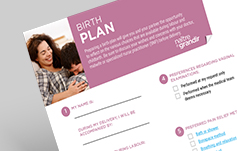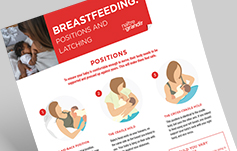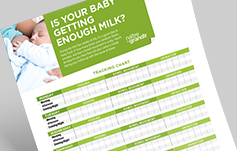It’s time to get ready for labour, delivery, and bringing your newborn home! Here’s how you can prepare.
Having a baby changes your life in all sorts of ways. Fortunately, there are things you can do before the birth to make your transition to parenthood easier.
Preparing for childbirth
Preparing for the birth of your baby helps to reduce anxiety and build your confidence as a parent.
-
Attend prenatal classes.
-
Ask other mothers about their labour and childbirth experiences.
-
Ask your health care provider to explain what to expect during labour and delivery.
-
Decide who will be with you during labour and delivery. You may also want to hire a doula.
-
Find your quickest route to the hospital, figure out hospital parking, and become familiar with the admission process. Many hospitals also offer virtual tours of the birthing unit.
Do you have a birth plan? A birth plan lets you indicate your preferences for labour and delivery.

-
Make sure to stay active and physically fit.
-
Prepare a birth plan to assess your different options and decide what matters most to you. Discuss it with your health care provider. The birth plan also serves to inform your care team of your preferences during delivery.
-
Learn to recognize signs of labour.
-
Find out when you should go to your birth location.
-
Prepare a list of what to pack for labour and delivery.
-
If you have older children, find someone to take care of them when you go into labour.
Due to COVID-19 restrictions, prenatal classes and breastfeeding support services are operating differently. For instance, some classes may now be offered online. To find out more about the services available in your area, contact your CLSC. |
Preparing for breastfeeding
Learning about breastfeeding can help you get off to a good start once baby arrives.
Use this guide to learn about breastfeeding positions and latching.

-
Talk to women who have had positive breastfeeding experiences.
-
Contact a breastfeeding support organization.
-
If you have any concerns about breastfeeding, discuss them with a health care professional. They can help dispel some commonly held myths.
-
If you intend to breastfeed, discuss this decision with your family members to make sure you can count on their support.
-
Research breastfeeding: what the first few days are like, how to get your baby to latch, what positions are best, and how to make breastfeeding easier.
Preparing to care for your baby
If this is your first baby, you may never have cared for a newborn before. As you prepare for your baby’s arrival, you’ll learn more about child development and basic care.
-
Ask other parents how they felt during their first few weeks at home with their baby.
-
Stay critical of what you see on social media to avoid comparing yourself to other parents or developing an idealized picture of what these early experiences will be like.
-
Learn about a newborn’s hunger cues and behaviours.
Download this chart to keep track of how often your baby feeds, their bowel movements, and their urine output.

-
Make a list of items your baby will need. Ask friends and family if they have any items you can borrow. Gradually stock up on baby things.
-
Decide where your baby will sleep and prepare the environment. The safest place for your newborn to sleep is in a crib in your room.
-
Make sure your car seat is installed so it’s ready when you leave the hospital.
-
Baby-proof your home.
-
Find out about parental leave.
-
Rest when you can. Ask for help when you need it.
-
Look into organizations that offer postnatal follow-ups, as well as support groups for new parents.
Preparing the family
Want to lend a hand to new parents? Try offering them our downloadable coupons to help make their lives a little easier.

A new baby impacts the entire family. If you have other children, talk to them about your pregnancy and explain how they can help once baby arrives.
-
Prepare your eldest child for this big change. Talk to them about the baby early in your pregnancy. As your due date approaches, explain what will happen so they know exactly what to expect.
-
Plan to have family and friends help out during your first few weeks at home.
Things to keep in mind
-
Preparing for your baby’s arrival can help you ease into your new role as a parent.
-
Getting ready for your baby can help reduce your anxiety.
-
It’s important to prepare your loved ones for the birth of your baby.
| Scientific review: Amélie Guay, M.Sc., PNC(C), perinatal advanced practice clinical nurse, CHUM
Research and copywriting:The Naître et grandir team
Updated: September 2020
|
Photo: GettyImages/Prostock-Studio
Sources
Please note that hyperlinks to other websites are not updated regularly, and some may have changed since publication. It is therefore possible that a link may not be found. If a link is no longer valid, use search engines to find the relevant information.
-
Doré, Nicole, and Danielle Le Hénaff. From Tiny Tot to Toddler: A practical guide for parents from pregnancy to age two. Quebec City, Institut national de santé publique du Québec. www.inspq.qc.ca
-
Office on Women’s Health. “Getting ready for baby.” www.womenshealth.gov
-
Canadian Paediatric Society. “Your newborn: Bringing baby home.” www.caringforkids.cps.ca
-
Stanford Children’s Health. “Preparing the Family.” www.stanfordchildrens.org
|